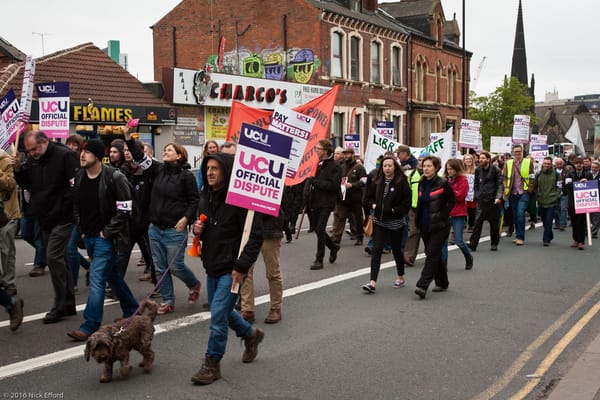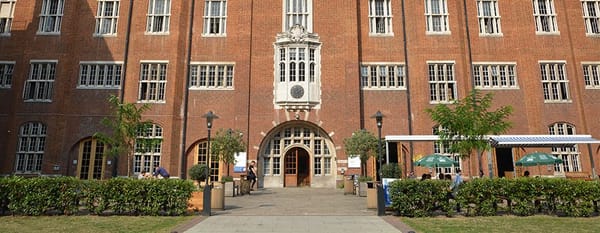Ethical Investment Paper Passed by College Council
A paper presented to College Council by the Union President on establishing a Socially Responsible Investment Policy working group was passed on 22nd November

The paper, written by the Union President, Deputy President (Finance and Services), and Ethics and Environment Officer, was originally submitted on the 22nd of November and was passed with minor amendments from the President’s Board.
It establishes a ‘working group’ that is mandated to investigate various proposals for guiding the policies by which the College’s Endowment Board invests funds – which is due to report back to College Council on February 14th 2020, at which time a vote will be taken on whether to implement the recommended policy. One of the few conditions on the recommendation is that it must be “easy to implement”, according to Abhijay Sood, the Union President, which he believes is reasonable.
Francesca Siracusa, the Ethics and Environment Officer, said: “we want to have a discussion about our beliefs and values as a university, and how that impacts everything we do – including where we spend our pounds and pence. This is about what we want to be doing just as much as what we don’t want to be doing. While we are certainly aiming for full divestment, I feel there are other options than just to divest or to not divest – there are options B, C, D, E, and F that other institutions, such as MIT, have done.”
Currently, the College has millions invested in fossil fuel companies, totalling to £8.9 million as of 2017, as well often investing in other industries that have ethical implications such as arms or tobacco.
The working group is comprised of members of College Council, including the Union President, the Chief Financial Officer, the Provost, the Dean of the Business School, and an elected staff representative. It does not include the Ethics and Environment Officer, who was one of the authors of the original paper. The group will be consulting with external experts and stakeholders, as well as accepting submissions for consideration from staff and students prior to January 31st (see end of article for more information.)
Abhijay said of his involvement that “it is one of the most meaningful working groups in which I’m involved, because it has a clear remit and is going to report back on a specific date.”
In the case of the paper, the aim is not necessarily divestment, but rather to open discussion. As Francesca said, “my perspective is that there weren’t many really constructive discussions that were happening between students and senior leadership, and that was our essentially aim of this paper”. The complexities of social responsibility often pose difficult questions with regards to ‘drawing the line’.
This was recently highlighted when an internal email sent by Ann Muggeridge, the Chair of Petroleum Engineering at Imperial, to the rest of the academic section was leaked, which described divestment from fossil fuels as a “simplistic reaction to a very complex problem” and encouraged colleagues to consider “how we can best articulate the importance of our research in both mitigating the impact of burning fossil fuels whilst providing essential raw materials and energy to societies around the world.”
Initially, this was identified as internal lobbying to oppose ethical investment on behalf of factions with vested interest within the College, prompting the Divest Imperial campaign to offer the statement:
“We at Divest are disappointed, but sadly not surprised, that these researchers immediately felt it necessary to use the talking points and tactics of the global fossil fuel industry to undermine an internal College process, especially one which has strong support from the staff and student body. That they must resort to slyly persuading their colleagues that fossil fuels are beneficial to society when we know they are accelerating climate breakdown is just embarrassing and demonstrates a blatant lack of scientific integrity … This leak should stand as a sign for those who support divestment that if we don't fight for it now, vested interests within the College will block it.”
Speaking to Ann, she said that her aim was to “make sure that everyone has their view represented within the considerations of the working group. It’s freedom of speech here.” She further clarified that this is inclusive of people within the section who do agree that investment in fossil fuels is socially irresponsible. Her personal perspective is that working with fossil fuel companies is necessary for development of sustainability-focused practices such as carbon capture and geological storage, which are essential for reducing carbon dioxide emissions while renewable energy technologies are developed. She clarified that she believes divestment would be discourteous, and could make it more difficult to work with fossil fuel companies to deploy vital technology.
There has been growing pressure for College to address the issue of ethical investment from both external and internal sources. In particular, the campaign group Divest Imperial has been highly active, having staged demonstrations – including one with around 200 people on the Queen’s Lawn on 29th November, in partnership with the UCU – gathered hundreds of signatures for petitions and open letters, and met with senior College management several times. They, along with Francesca, have also been involved in organising a recent Climate Assembly, which played host to guest speakers, ran workshops, and opened the floor to students and staff to discuss and voice concerns. Another is scheduled for early next year, with provision of support from the Union.
It is also a topic on which the Union has been mandated to act for over two years; however, little traction has been gained. Part of the reason for that has been a degree of reticence from the College; however, Abhijay also points to the Union itself: “I don’t think my predecessors thought that this was a priority or thought about it enough to think of a way to constructively move forward.”
“This is a testament to what you can do when you stand firm and don’t blink, when you think about how to get a discussion going and open doors, because there are people who would not want this to have been brought forward.”
Submissions to the SRI working group will initially be written, but a subset of early submissions will be chosen for a further oral presentation. The contact email is sri.policy@imperial.ac.uk.






